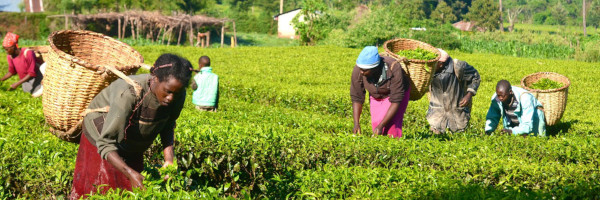Family Farming: Difference between revisions
Created page with "{{Chapter |image=Family Farming.jpg |poc=Wilfred Pinfold |authors=Wilfred Pinfold |sectors=Agriculture |summary=Family farming is a type of agricultural production that is own..." |
No edit summary |
||
| Line 3: | Line 3: | ||
|poc=Wilfred Pinfold | |poc=Wilfred Pinfold | ||
|authors=Wilfred Pinfold | |authors=Wilfred Pinfold | ||
|blueprint=Agriculture | |||
|sectors=Agriculture | |sectors=Agriculture | ||
|summary=Family farming is a type of agricultural production that is owned and operated by a family, with most of the labor provided by family members. | |summary=Family farming is a type of agricultural production that is owned and operated by a family, with most of the labor provided by family members. | ||
Latest revision as of 03:00, January 24, 2023
| Agriculture | |
|---|---|

| |
| Sectors | Agriculture |
| Contact | Wilfred Pinfold |
| Topics | |
- Authors
Family farming is a type of agricultural production that is owned and operated by a family, with most of the labor provided by family members.
This type of farming is common in rural areas, and can range in scale from small, subsistence farms to larger operations that produce crops or raise livestock for sale. Family farms are often passed down through generations and are often characterized by a close relationship between the family and the land they work on. Family farming can include a variety of different types of agriculture, such as small-scale crop production, horticulture, dairy and livestock farming, and even aquaculture.
Family farming can have a number of benefits, including:
- Strong community ties: Family farms often have deep roots in their local communities, and can help to strengthen social and economic ties within those communities.
- Conservation of natural resources: Family farmers often have a vested interest in preserving the land and resources they rely on, and may be more likely to implement sustainable farming practices.
- Food security: Family farms can help to ensure a stable and secure food supply for local communities.
- Lower costs: Family farms often have lower overhead costs than larger, commercial operations, which can make them more financially sustainable in the long-term.
- Personal fulfillment: Many people find a sense of personal fulfillment and satisfaction in working the land and producing food for their communities.
Some drawbacks of family farming include:
- Limited scale: Family farms are often small and may not be able to produce enough food to meet the needs of a large population.
- Limited resources: Family farms often have fewer resources than larger, commercial operations, which can make it difficult for them to compete in the marketplace.
- Risk of losing land: Family farms are often passed down through generations, and there is a risk that the land may be sold or lost due to lack of interest or financial difficulties.
- Limited access to markets: Family farms may have limited access to markets, which can make it difficult for them to sell their products and make a profit.
Vulnerability to external factors : Family farms may be vulnerable to external factors such as weather, disease, and market fluctuations, which can make it difficult to maintain a consistent income.
